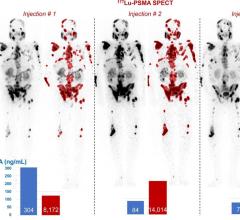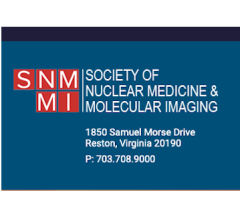
October 2, 2013 —The Thayer School of Engineering and Geisel School of Medicine at Dartmouth together with LI-COR Biosciences and Affibody AB announced a new partnership to establish an efficient pipeline for development and translation of molecularly targeted agents. The National Cancer Institute funds the five-year project.
The study will use a cost-effective, risk-diluted approach for rapid development and testing of molecularly-targeted imaging agents in phase 0 microdosing studies. The microdosing studies are designed to evaluate imaging of specific targets.
“Targeting an evaluation of imaging in early human surgical trials will allow us to efficiently assess potential candidates for further development,” said Brian Pogue, Ph.D., lead investigator and Dartmouth professor. “This approach will dramatically accelerate the paradigm shift to molecularly guided surgical oncology. This grant will allow us to develop and test agents produced with current Good Manufacturing Practices whose primary use will be in diagnostic guidance in surgical oncology, and used at microdoses similar to nuclear medicine tracers.”
The first agent will be an Affibody molecule targeted to the epidermal growth factor receptor (EGFR), which is overexpressed in a broad range of cancers.
Fredrik Frejd, Ph.D., chief science officer, Affibody. “Due to the high target specificity and favorable tissue distribution properties of Affibody molecules, tumors and their boundaries can be rapidly identified and characterized, which may allow for the development of image-guided surgery as a potential option for improved brain tumor treatment.”
The study will employ commercially available state-of-the-art surgical microscopes from Leica and Zeiss that are equipped for intraoperative fluorescence imaging. Surgical signal detection and binding specificity will be the primary outcomes from the phase 0 trials. First-in-human studies with recurrent high-grade brain tumor patients will be pursued at Dartmouth. Approval for the microdosing studies will be sought under the exploratory investigational new drug (IND) pathway at the FDA.
For more information: www.licor.com


 February 03, 2026
February 03, 2026 









